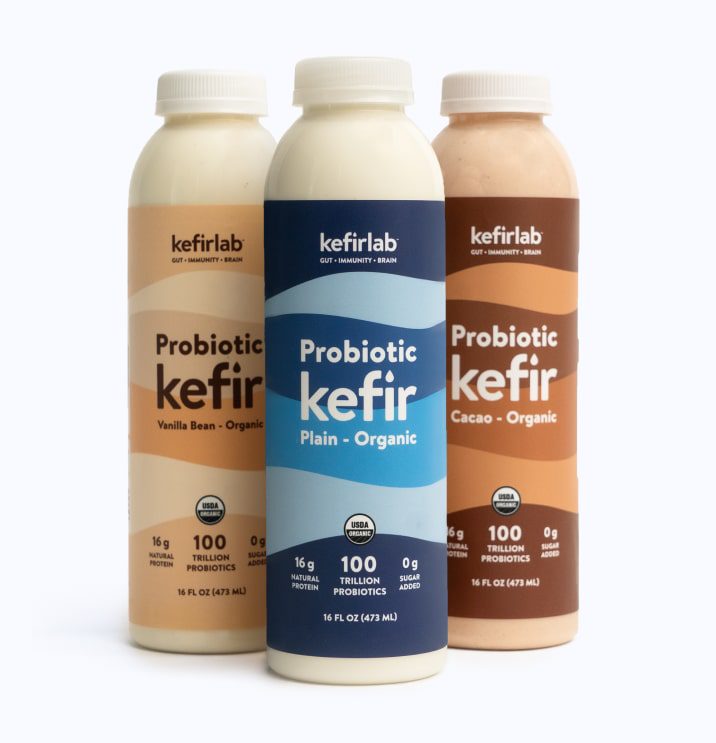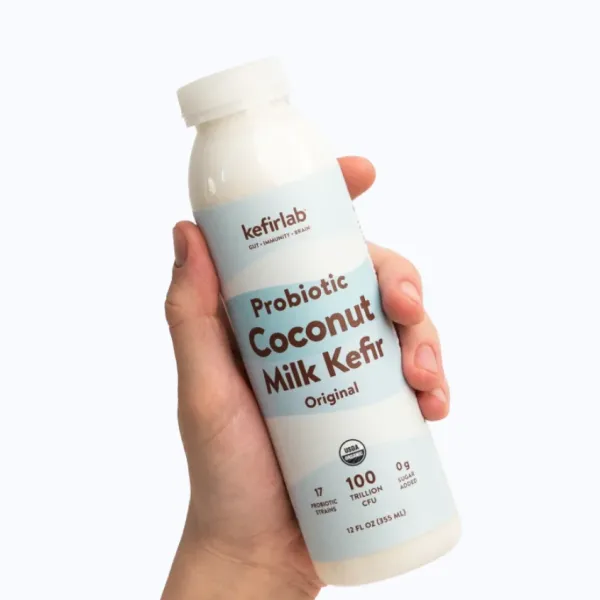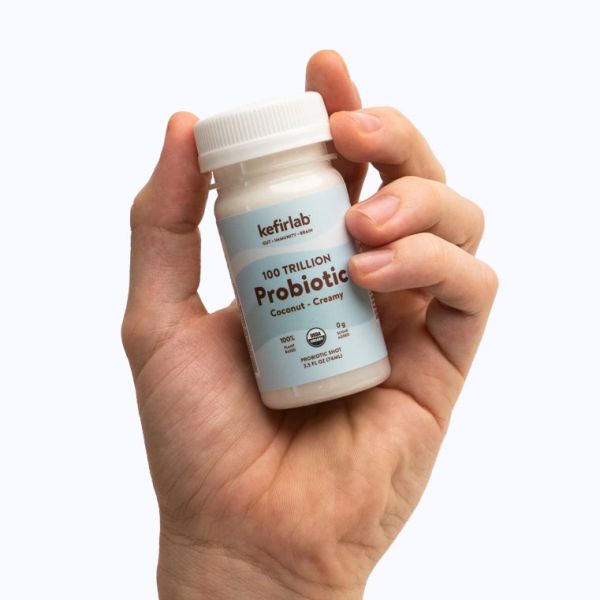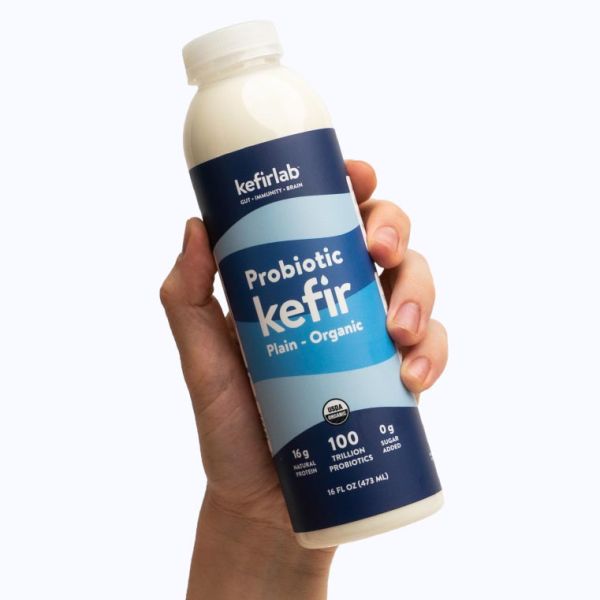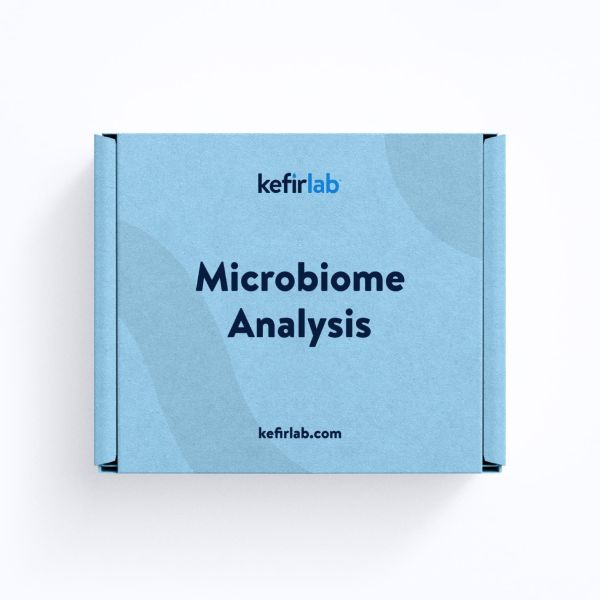What are Functional Foods & Why it’s the Key for Optimal Health

As a health-conscious individual, I always seek ways to improve my diet and overall wellness.
One approach that has gained significant attention in recent years is incorporating functional foods into our daily meals.
Functional foods are not new to our diets. Many traditional cuisines have long recognized the health-promoting properties of specific foods and incorporated them into their culinary practices.
However, with the rise of modern nutritional science, we now have a deeper understanding of these foods’ role in supporting our health and wellness.
In this comprehensive guide, I will delve into functional foods, their categories, benefits, and tips to add them to your diet. I’ll also address misconceptions and future trends in nutrition.
The Science Behind Functional Foods
Functional foods are foods that do more than provide the basic nutrients our body needs.
They have natural chemicals called bioactive compounds that can help our body function better and stay healthy.
These compounds can interact with our body at the cellular level, giving us extra benefits beyond just nutrition.
These bioactive compounds can be classified into several categories, including:
- Phytochemicals: Plant-based compounds with antioxidant, anti-inflammatory, and other health-promoting properties. Examples include flavonoids, carotenoids, and polyphenols.
- Prebiotics: Non-digestible fibers that promote the growth of beneficial gut bacteria, supporting digestive health and immune function.
- Probiotics: Live microorganisms, often found in fermented foods, that can improve gut health and provide other health benefits when consumed in adequate amounts.
- Functional proteins and peptides: Components of certain foods that can exert health-promoting effects, such as improving muscle recovery or supporting heart health.
Why We Need Functional Foods
To understand how functional foods can help us stay healthy, we need to know that our diet, health, and disease are all connected.
Our bodies face different stressors like toxins, inflammation, and oxidative stress that can lead to chronic diseases like heart disease, diabetes, and cancer.
Functional foods containing bioactive compounds may help our body fight against these stressors and improve our natural defense mechanisms.
By consuming functional foods, we can potentially reduce the risk of chronic diseases and improve our overall health.
Categories of Functional Foods
Functional foods can be classified into different categories based on their source, the bioactive compounds they contain, and the specific health benefits they offer. Some common categories include:
- Whole Foods: These are unprocessed or minimally processed foods naturally containing health-promoting bioactive compounds. Examples include fruits, vegetables, whole grains, nuts, seeds, and legumes.
- Fortified Foods: These foods have been enriched with added nutrients or bioactive compounds to enhance their health benefits. Examples include fortified cereals, milk, and orange juice.
- Enhanced Foods: These foods have been modified to increase the concentration of specific bioactive compounds. Examples include high-oleic sunflower oil, which has more healthful monounsaturated fats than regular sunflower oil, and tomatoes with increased levels of the antioxidant lycopene.
- Fermented Foods: These are foods that undergo a fermentation process, producing beneficial probiotics and other bioactive compounds. Examples include yogurt, kefir, sauerkraut, kimchi, and kombucha.
- Dietary Supplements: These products contain concentrated amounts of specific bioactive compounds intended to supplement the diet. Examples include fish oil, probiotic supplements, and herbal extracts.
It is worth noting that functional foods can overlap between these categories. For instance, fermented food like yogurt can also be considered whole food, as it is minimally processed and naturally contains beneficial probiotics.
Health Benefits of Functional Foods
The health benefits of functional foods are wide-ranging, thanks to the diverse array of bioactive compounds they contain.
Some common health benefits associated with functional foods include:
- Antioxidant Protection: Many functional foods, such as fruits and vegetables, are rich in antioxidants, which help neutralize harmful free radicals in the body and protect our cells from damage. This can help reduce the risk of chronic diseases like heart disease, cancer, and neurodegenerative disorders.
- Anti-inflammatory Effects: Chronic inflammation is a contributing factor to many chronic diseases. Some functional foods, such as fatty fish, nuts, and seeds, contain anti-inflammatory compounds that can help reduce inflammation.
- Cardiovascular Health: Certain functional foods, such as whole grains, nuts, and seeds, can help improve heart health by reducing cholesterol levels, blood pressure, and inflammation.
- Digestive Health: Functional foods that contain prebiotics and probiotics can help promote a healthy balance of gut bacteria, supporting digestive health and immune function.
- Weight Management: Some functional foods, such as high-fiber whole grains, fruits, and vegetables, can help with weight management by promoting satiety and reducing calorie intake.
- Cognitive Health: Functional foods rich in omega-3 fatty acids, such as fatty fish and walnuts, have been shown to support mental health and may help protect against age-related cognitive decline.
The potential health benefits of functional foods are vast, and ongoing research continues to uncover more ways these powerful ingredients can support our health and wellness.
Preventing Chronic Diseases with Functional Foods
Functional foods can play a crucial role in disease prevention by supporting our bodies natural defense mechanisms and promoting optimal health.
Some of the many ways functional foods can help prevent chronic diseases include:
- Reducing oxidative stress: Antioxidant-rich foods like fruits and vegetables can reduce the risk of chronic diseases such as cancer, heart disease, and neurodegenerative disorders by neutralizing harmful free radicals and protecting our cells from damage.
- Lowering inflammation: Functional foods with anti-inflammatory compounds, such as fatty fish, nuts, and seeds, can reduce inflammation and lower the risk of chronic diseases like heart disease, diabetes, and cancer.
- Improving heart health: Functional foods rich in heart-healthy nutrients, such as fiber, monounsaturated fats, and plant sterols, can help lower cholesterol levels, blood pressure, and inflammation, reducing the risk of heart disease.
- Supporting gut health: Functional foods with prebiotics and probiotics, such as whole grains, fruits, vegetables, and fermented foods, can support gut health and immune function by promoting a healthy balance of gut bacteria.
- Boosting immune function: Functional foods with immune-boosting nutrients like vitamins A, C, and E and zinc can enhance our body’s natural defense mechanisms and protect against infections and diseases.
Incorporating functional foods into your diet can help support your body’s natural defense mechanisms and reduce the risk of chronic diseases.
Popular Functional Food Ingredients and Their Benefits
There are countless functional food ingredients available, each offering unique health benefits. Some popular examples include:
- Berries: Rich in antioxidants, such as anthocyanins and ellagic acid, can help protect against cellular damage and reduce the risk of chronic diseases.
- Leafy Greens: High in vitamins, minerals, and phytochemicals, such as lutein and zeaxanthin, which have been shown to support eye health and may help protect against age-related macular degeneration.
- Fatty Fish: A great source of omega-3 fatty acids, which can help reduce inflammation and support heart and brain health.
- Nuts & Seeds: Contain heart-healthy fats, fiber, and plant sterols, which can help lower cholesterol levels and support cardiovascular health.
- Whole Grains: Rich in fiber and essential nutrients, such as B vitamins, iron, and magnesium, which can support digestive health, energy production, and overall wellness.
- Legumes: A good source of plant-based protein, fiber, and phytochemicals, such as isoflavones, which have been shown to support heart health and may have cancer-fighting properties.
- Fermented Foods: Contain beneficial probiotics that can help improve gut health and support immune function.
- Dark Chocolate: Contains flavonoids, which have been shown to support heart health by improving blood flow and reducing inflammation.
By incorporating various functional food ingredients into your diet, you can enjoy a wide range of health benefits and support your overall wellness.
Tips for Incorporating Functional Foods into Your Diet
Incorporating functional foods into your diet is an excellent way to support overall health and reduce the risk of chronic diseases. And here are some simple and effective ways to start incorporating functional foods into your diet:
- Adopt a whole-food, plant-based eating pattern emphasizing fruits, vegetables, whole grains, legumes, nuts, and seeds rich in health-promoting bioactive compounds.
- Incorporate fermented foods, such as yogurt, kefir, sauerkraut, kimchi, and kombucha, to support gut health and overall wellness.
- Choose products with minimal processing and added ingredients when shopping for functional foods.
- Opt for whole, fresh fruits and vegetables over canned or processed versions.
- Choose whole grains and intact seeds and nuts over refined or processed counterparts.
- Consume a diverse range of functional foods to ensure you get a wide array of health-promoting bioactive compounds.
How to Identify and Choose High-Quality Functional Foods
When choosing high-quality functional foods, it’s important to look for minimally processed products with minimal added ingredients.
Here are some tips for identifying and choosing high-quality functional foods:
- Read the Ingredient List: Choose products with simple ingredient lists that contain whole, minimally processed ingredients. Avoid products with added sugars, artificial flavors, and preservatives.
- Look for Whole Foods: Choose whole, fresh fruits and vegetables over canned or processed versions, and opt for whole grains and intact seeds and nuts over refined or processed counterparts.
- Choose Organic: Look for products with the USDA Organic label, which indicates that the product was produced without the use of synthetic pesticides or fertilizers.
- Avoid GMOs: Choose products with the Non-GMO Project Verified label, which indicates that the product was produced without genetically modified organisms (GMOs).
- Consider Ethical and Sustainable Practices: Look for products with certifications such as Fair Trade, Rainforest Alliance, and Certified Humane, which indicate that the product was produced under ethical and sustainable labor and environmental practices.
By following these tips, you can ensure that the functional foods you choose are not only good for your health but also good for the environment and communities that produce them.
Shopping for Functional Foods: Labels and Certifications to Look For
When you shop for functional foods, look for products with minimal processing and added ingredients.
Choose whole, fresh fruits and vegetables over canned or processed versions, and opt for whole grains and intact seeds and nuts over refined or processed counterparts.
Also, consider the following labels and certifications when shopping for functional foods:
- Organic: Look for the USDA Organic label, which indicates that the product was produced without the use of synthetic pesticides or fertilizers.
- Non-GMO: Look for the Non-GMO Project Verified label, which indicates that the product was produced without genetically modified organisms (GMOs).
- Fair Trade: Look for the Fair Trade Certified label, which indicates that the product was produced under ethical and sustainable labor practices.
- Rainforest Alliance: Look for the Rainforest Alliance Certified label, which indicates that the product was produced under environmentally and socially responsible practices.
- Certified Humane: Look for the Certified Humane Raised and Handled label, which indicates that the product came from animals raised and treated humanely.
By choosing products with these labels and certifications, you can ensure that you are not only getting functional foods that are good for your health but also good for the environment and communities that produce them.
Top Functional Foods for Health and Wellness
While there are countless functional foods to choose from, some stand out for their exceptional health benefits. Here are some top functional foods to incorporate into your diet:
- Blueberries: These antioxidant-rich berries may reduce inflammation, improve cognitive function, and lower the risk of chronic diseases such as heart disease and cancer.
- Salmon: This fatty fish is a great source of omega-3 fatty acids, which can help reduce inflammation, support heart health, and improve brain function.
- Spinach: This leafy green is packed with vitamins, minerals, and phytochemicals that support overall health, including eye health, bone health, and cognitive function.
- Almonds: These nuts are rich in monounsaturated fats, fiber, and vitamin E, which can help lower cholesterol levels, reduce inflammation, and support heart health.
- Quinoa: This whole grain is high in protein, fiber, and essential nutrients such as iron and magnesium, making it a great choice for supporting digestive health, energy production, and overall wellness.
- Greek Yogurt: This fermented food is a great source of probiotics, which can help support gut health and overall immune function.
- Turmeric: This spice contains curcumin, a potent antioxidant and anti-inflammatory compound that has been shown to reduce the risk of chronic diseases such as Alzheimer’s and cancer.
By incorporating these functional foods into your diet, you can enjoy various health benefits and support your overall wellness.
Incorporating Functional Foods into Your Daily Meal Plan
Incorporating functional foods into your daily meal plan can be easy and delicious. Here are some tips for getting started:
- Start small: Begin by incorporating one or two functional foods into your daily meals. For example, add berries to your morning oatmeal or snack on almonds in the afternoon.
- Include probiotic-rich foods: Incorporate fermented foods like yogurt, kefir, and sauerkraut into your daily diet to support gut health and overall wellness.
- Experiment with recipes: Look for recipes incorporating functional foods, such as salmon with quinoa and spinach salad or Greek yogurt with berries and granola.
- Swap out processed foods: Replace processed foods with whole, minimally processed functional foods. For example, swap out white rice for quinoa or potato chips for roasted almonds.
- Include a variety of colorful fruits and vegetables: Aim to fill half of your plate with colorful fruits and vegetables at each meal, as these are some of the best sources of functional compounds like antioxidants, vitamins, and minerals.
- Swap out refined grains for whole grains: Choose whole grains like quinoa, brown rice, and whole-wheat bread over refined grains, as they offer more functional benefits, such as fiber and phytochemicals.
- Incorporate healthy fats: Include sources of healthy fats like fatty fish, nuts, seeds, and avocados in your meal plan to benefit from their functional properties, such as omega-3 fatty acids and monounsaturated fats.
- Experiment with spices and herbs: Add flavor and health benefits to your meals using functional spices and herbs like turmeric, ginger, garlic, and cinnamon.
Debunking Common Misconceptions about Functional Foods
Despite the growing interest in functional foods, there are still several misconceptions surrounding this area of nutrition. Some common misconceptions include:
- Functional foods are a substitute for a healthy diet: Functional foods provide health benefits, but they should not replace a nutrient-rich diet. To ensure optimal health, eat various whole foods, such as fruits, vegetables, whole grains, lean proteins, and healthy fats.
- Functional foods are only found in exotic, expensive products: Functional foods aren’t always exotic or costly. You can find many nutrient-rich options among everyday foods, including fruits, vegetables, whole grains, nuts, and seeds. Incorporating these affordable foods into your diet can provide significant health benefits.
- All functional foods are created equal: Not all functional foods offer the same health benefits, as the specific bioactive compounds and their effects can vary widely. It’s essential to consume a diverse range of functional foods to ensure you are getting a wide array of health-promoting bioactive compounds.
- Functional foods can cure diseases: Functional foods may improve overall health and reduce the risk of chronic diseases, but they should not be considered a cure-all for existing health conditions. Consult a healthcare professional to manage and treat any health issues while incorporating functional foods into your diet for optimal wellness.
By debunking these common misconceptions, we can better appreciate the role of functional foods in supporting our health and wellness.
Functional Foods and Dietary Supplements: What’s the Difference?
While functional foods and dietary supplements both offer health benefits, there are some key differences between the two.
Functional foods are whole foods or food products that contain bioactive compounds with potential health benefits, while dietary supplements are concentrated sources of specific nutrients or compounds, typically in pill or powder form.
Generally, it’s best to get your nutrients and bioactive compounds from whole foods rather than supplements, as whole foods provide a range of beneficial compounds that synergize together to support health.
However, in some cases, supplements may be necessary to address specific nutrient deficiencies or health concerns.
If you’re considering taking a dietary supplement, it’s essential to consult with a healthcare professional to determine the best course of action for your individual needs.
Future Trends in Functional Foods
The functional foods market is expected to continue growing in the coming years as more people become aware of the connection between diet and health and seek out products that support their wellness goals. Some future trends in functional foods may include:
- Personalized nutrition: As our understanding of individual nutritional needs and genetic factors grows, we may see more functional food products tailored to specific health concerns or genetic profiles.
- Plant-based functional foods: With increasing interest in plant-based diets, functional foods derived from plants are likely to become even more popular, such as plant-based protein sources and plant-derived functional ingredients like prebiotic fibers.
- Innovative functional food products: As the market for functional foods grows, we can expect to see more innovative products, such as functional snacks or beverages, that offer convenient and tasty ways to incorporate health-promoting ingredients into our daily routines.
Conclusion
Functional foods offer an exciting opportunity to take control of our health and wellness through the power of nutrition.
By understanding the science behind functional foods, recognizing the different categories, and learning how to incorporate them into our daily meal plans, we can unlock the potential of these health-promoting foods and enjoy a more vibrant, healthy life.
So, why not explore the world of functional foods today and see how they can help you achieve your health and wellness goals?
Join Kefir Club
Like our probiotics, our emails are clean and good for you. Spam Free. Unsubscribe anytime.
